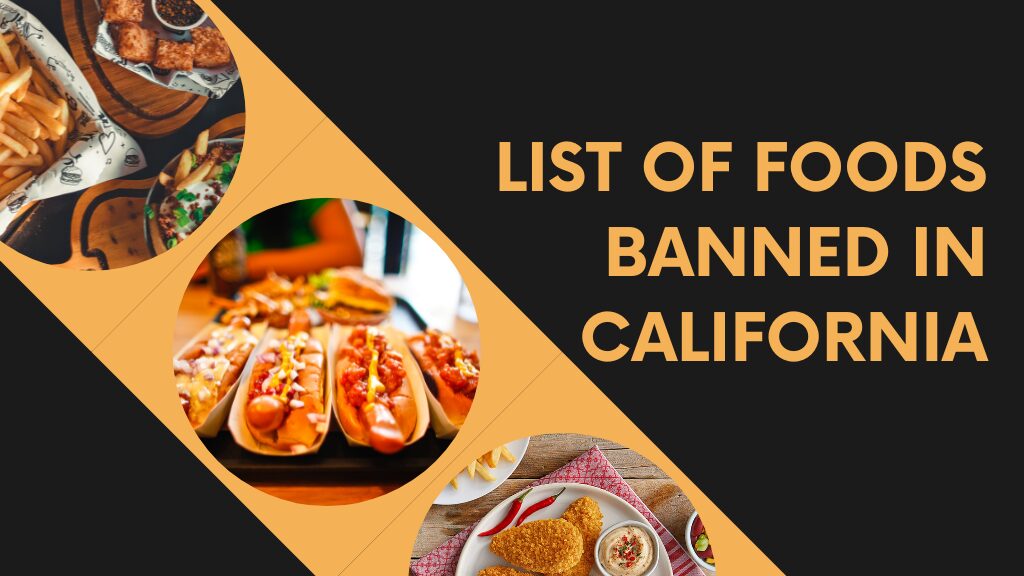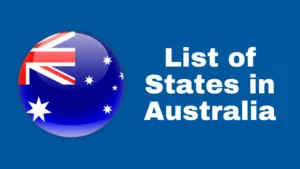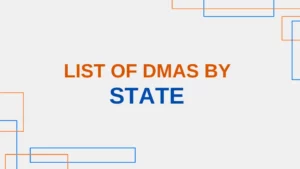California, a melting pot of cultures and cuisines, is also known for its stringent food regulations, which sometimes lead to the banning of certain foods. These regulations, while sometimes surprising to visitors and even locals, are part of the state’s commitment to health, safety, and environmental stewardship. In this article, we’ll explore a list of foods banned in California.
List of Foods Banned in California
California’s food laws can be perplexing to many, but they reflect the state’s dedication to a healthy and sustainable lifestyle. Here’s a list of some notable foods that you won’t find in the Golden State:
- Foie Gras
- Shark Fins
- Certain Artificial Dyes and Preservatives
- Trans Fats (in restaurants and bakeries)
- Horse Meat
- Unpasteurized Milk (heavily regulated)
- Kinder Surprise Eggs
- High-sugar sodas (in some areas)
- Non-Certified Organic Produce (in certain government facilities)
- Genetically Modified Salmon
- Absinthe (Traditional, Thujone-containing)
- Caffeinated Alcoholic Beverages
- Raw Almonds (must be pasteurized)
- Sassafra oil (in food and beverages)
- Yellowtail Tuna (certain fishing areas, due to mercury levels)
Here is a brief explanation of the above list:
Foie Gras:
This is a luxury food product made from the liver of a duck or goose that has been specially fattened. It’s a French delicacy, but its production involves force-feeding the birds, a practice known as “gavage.” Due to concerns over animal cruelty associated with this method, California has banned the sale of foie gras.
Shark Fins:
Used primarily in shark fin soup, a traditional Chinese dish, shark fins have been banned in California to combat the harmful practice of shark finning. Shark finning involves catching sharks, removing their fins, and often discarding the rest of the shark back into the ocean. This practice leads to wasteful depletion of shark populations and ecological imbalance.
Certain Artificial Dyes and Preservatives:
California has been proactive in banning or regulating the use of certain artificial dyes and preservatives in foods. These bans are primarily due to health concerns, as some of these substances have been linked to negative health effects, including allergic reactions and behavioural issues in children.
Trans Fats (in restaurants and bakeries):
Trans fats, often found in processed foods, baked goods, and fried items, have been linked to an increased risk of heart disease. California has banned the use of artificial trans fats in restaurants and bakeries to promote healthier eating habits and reduce the risk of heart-related health issues among the public.
Horse Meat:
The consumption of horse meat is a controversial issue in many countries. In California, the sale and consumption of horse meat for human consumption are illegal. This ban reflects ethical concerns and the cultural perspective that horses are companion animals rather than livestock.
Unpasteurized Milk (heavily regulated):
While not entirely banned, the sale of unpasteurized milk, often referred to as raw milk, is strictly regulated in California. Unpasteurized milk can contain harmful bacteria and other pathogens, posing a risk of foodborne illnesses. The regulations aim to minimize health risks while allowing some degree of access for those who choose to consume raw milk.
Kinder Surprise Eggs:
These are chocolate eggs containing a small toy inside a plastic capsule. While popular in many parts of the world, they are banned in California and the rest of the United States. The ban is due to a federal regulation that prohibits the sale of any confectionery product containing a non-nutritive object embedded within it, as it poses a potential choking hazard for children.
High-Sugar Sodas:
Some areas in California have implemented bans or restrictions on the sale of high-sugar sodas and other sweetened beverages to combat obesity and encourage healthier choices.
Non-Certified Organic Produce:
In certain government facilities, there are bans or restrictions on the use of non-certified organic produce to promote sustainable farming practices and reduce exposure to pesticides.
Genetically Modified Salmon:
California has placed restrictions on the sale of genetically modified salmon due to concerns about potential environmental impacts and the lack of long-term health studies.
Absinthe (Traditional, Thujone-containing):
While modern formulations of absinthe are legal, the traditional versions containing thujone, a chemical compound thought to cause psychoactive effects, are banned.
Caffeinated Alcoholic Beverages:
These are banned due to health risks associated with the combination of caffeine and alcohol, which can mask the depressant effects of alcohol and lead to increased risk-taking behaviour.
Raw Almonds:
California requires the pasteurization of almonds before sale, a regulation introduced in response to salmonella outbreaks linked to raw almonds.
Sassafras Oil (in food and beverages):
Authorities have banned sassafras oil, once a common flavoring for root beer, in foods and beverages because it contains safrole, a substance proven to be carcinogenic in animal studies.
Yellowtail Tuna (certain fishing areas):
Advisories recommend against consuming yellowtail tuna caught in certain areas off the California coast due to concerns about mercury levels.
The Impact of These Bans
These bans have a significant impact on both consumers and businesses. While they sometimes limit culinary choices, they also promote health and environmental conservation. The state’s proactive approach to food safety and animal welfare often sets a precedent for other regions.
How Californians Respond
Californians have a mixed response to these bans. While some appreciate the health and environmental benefits, others believe these regulations limit their personal choices. Regardless, these laws shape the state’s unique food culture.
Conclusion
California’s list of banned foods highlights the state’s commitment to health, safety, and ethical practices. Whether you agree with these regulations or not, they are an integral part of California’s unique culinary identity.
FAQs
Why is foie gras banned in California?
Foie gras is banned due to animal welfare concerns regarding the force-feeding of ducks and geese.
Are all artificial dyes and preservatives banned in California?
Not all, but certain artificial dyes and preservatives linked to health issues are banned.
Can you legally buy raw milk in California?
Yes, but its sale is heavily regulated due to health risks.
Related Post:





